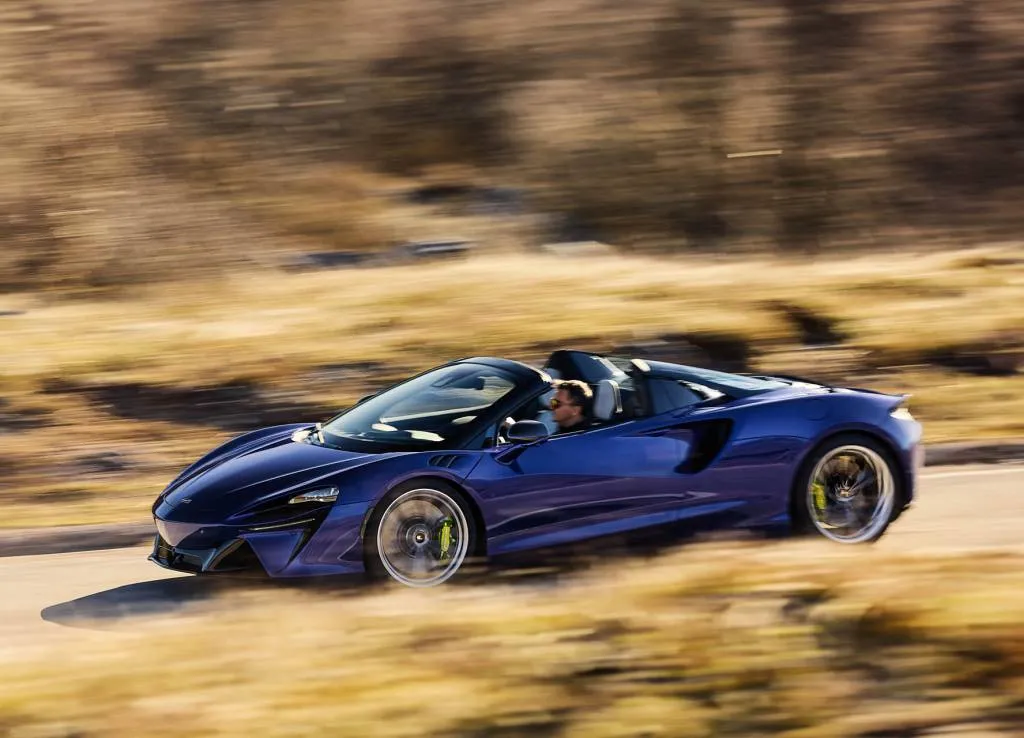- The CEO of McLaren wants the U.K. government to help create a battery supply chain
- The new supply chain would lead to power-dense battery cell manufacturing
- This would all lead to future McLaren electric supercars being produced in the U.K.
McLaren Automotive CEO Michael Leiters is calling on the U.K. government to invest in the country’s battery supply chain to pave the way for electric supercars.
“We have an opportunity to invest in next-generation, high power-dense battery cell manufacturing and ensure the U.K. is at the forefront of future performance car powertrain technology,” Leiters said in a statement.
McLaren Artura Spider
The U.K. is no stranger to EV manufacturing. Nissan’s Sunderland factory has built over 500,000 Leafs, for example. But Leiters believes the supply chain isn’t ready for all-electric versions of McLaren’s supercars. The McLaren Artura plug-in hybrid boasts 64% U.K. content, but that would be only 13% if it was an EV, he said, adding that smaller automakers like McLaren need government help to “de-risk” investments in electrification.
“The costs of this technological shift are astronomical, especially for low-volume, highly-specialized suppliers,” Leiters said. He also says customer demand for electric supercars “remains extremely low” but that this could change as battery technology continues to develop. Once that happens, Leiters believes a McLaren electric supercar “could help drive the transition towards pure electrification among mass-market customers.”

McLaren Artura Spider
It’s unclear when we’ll see an all-electric McLaren, though. Last year the company’s McLaren Applied Technologies division announced a partnership with Elaphe to marry its racing tech with the latter’s in-wheel motors. But the applied-technologies division is siloed from the road-car division within the company.
McLaren currently exports more than 90% of its cars, according to Leiters, and thus may need to introduce an EV depending on the state of emissions standards in its main markets. The U.K. itself has moved to end sales of new internal-combustion vehicles, but has delayed the ban by five years to 2035.


